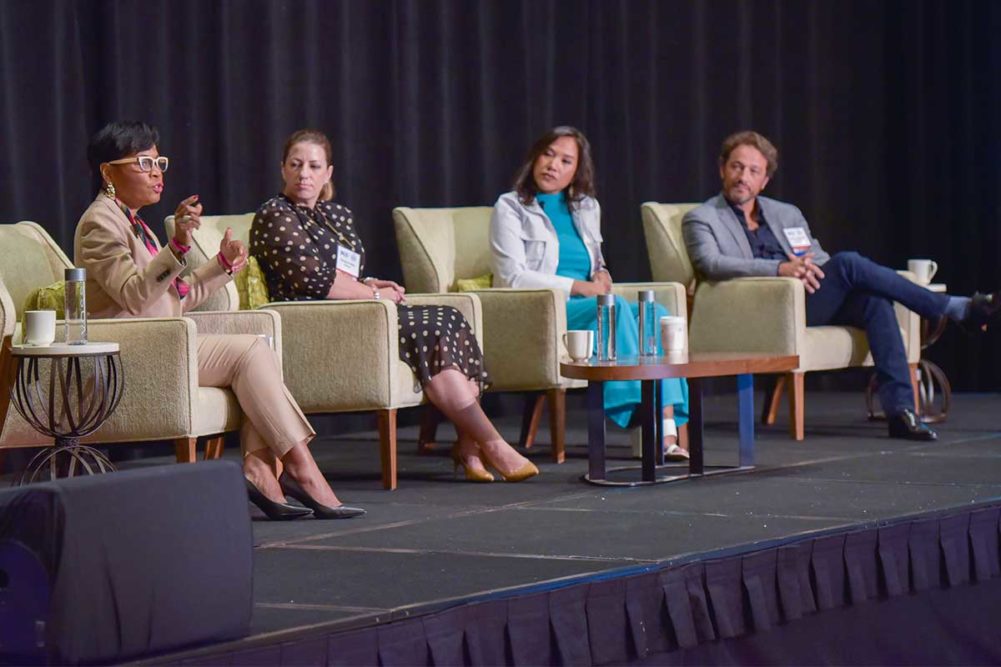MARCO ISLAND, FLA. — Although the term was coined more than two decades ago, the “war for talent” is coming to fruition as companies struggle to find skilled employees. To win the battle, businesses need to develop a culture of openness, diversity and inclusion that will help them attract and retain qualified people in their organizations.
That’s the advice shared by a panel moderated by Cathy Harrell, founder of DreamVision, D&I Consultants at SNAC International’s Executive Leadership Forum (ELF), held recently in Marco Island, Fla.
Venessa Yates, vice president, snacks, WalMart, Bentonville, Ark., pointed out that employees now have more choice in where they look, and many of them are demanding to work for businesses that share their personal values and provide more than a paycheck.
Companies that are just beginning to engage in diversity and inclusion, she added, are finding themselves behind other organizations in the hiring process.
“We can talk a little bit about the pandemic if we really want in terms that it has accelerated that need and that demand, but I think it’s just more that we have a population and a generation of potential employees and associates who are demanding something different,” Ms. Yates explained.
Dina Reagan, senior director, R&D – salty, Campbell Snacks, a division of Camden, NJ-based Campbell Soup Co., recommended that snack manufacturers look for candidates from different cultural backgrounds and create a safe working environment where people can express themselves and ask questions, even if there aren’t answers immediately available.
“Take a risk on the individual and help them, and I promise you it will be a two-way street,” she said. “You will gain as much, if not even more, from that relationship, and you will see the output of the individual soar. So, it’s super critical now on the war for talent. You want to be able to retain who you have and attract a diverse slate of candidates.”
Ms. Yates added that companies may need to go beyond recruiters who serve a purpose in providing a narrow pool of potential candidates and even search on LinkedIn to broaden their quest for talent.
“We are in an industry that relies heavily on networking and recommendations and mentorship and sponsorship, and in my opinion, the traditional way of putting people into an organization is no longer,” she explained. “We have to really think differently about how we bring people into our team, what their careers look like and the value that they can bring in a truly inclusive environment.”
All too often, Ms. Reagan said, businesses look for candidates who are a “cultural fit,” a term she avoids because it encourages assimilation, inherently limits the pool of qualified employees from a diversity and inclusion standpoint and allows for unconscious bias to enter the search and hiring process.
“When it’s a relation-based culture, you form what’s called an ‘in’ crowd, and if you’re not in that [group], you don’t get the knowledge, you don’t get to put your voice on the table. I’ve seen it happen,” she noted.
Pierre Trippitelli, managing partner for CPG talent advisory firm, Perpetual, urged ELF attendees to “lead from the front.”
Diversity and inclusion, he added, needs to start at the top to effectively change the culture of any organization.
“If the leaders are not taking it seriously and just talking and not acting, it’s never going to work,” he said.





